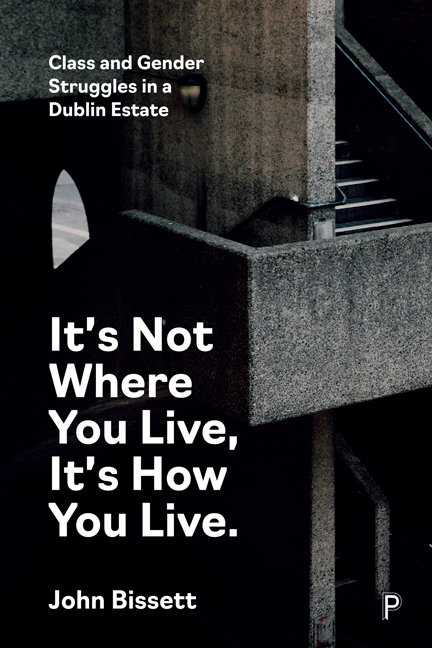12 - Women and the affective domain of the Bridgetown Estate
Published online by Cambridge University Press: 17 January 2024
Summary
Understanding class in a practically adequate manner is therefore crucially important, and particularly as to how it relates to gender. In her work on the experiences of working-class mothers in England, Diane Reay (1998a, p 272) argues strongly that class matters crucially in a material sense, but she also makes the case for a more expansive understanding of what class is that extends from beyond the economic into a qualitative emotional world: ‘Class is a complicated mixture of the material, the discursive, psychological predispositions and sociological predispositions that quantitative work on class location and class identity cannot hope to capture.’
Under particular conditions and within specific class-based contexts, we develop relations to ourselves and to others. The struggles over daily necessity just described in the previous chapter have a strong gendered dimension in that life takes a particular form for men like Charlie, Frank and Karl where they are usually trying to get themselves from week to week, living out relatively conventional masculine identities. But for women like Michelle, Rosy, Steph, Nadia and Tina, they are carrying the responsibility for children and grandchildren and their well-being over a lifetime, as well as trying to provide the basic necessities of life. It is clear from this study that the provision of care and relations of dependency and interdependency are central to their lives and to the life of the Bridgetown Estate. A broad range of feminist theory (Gilligan, 1982; Tronto, 1994; Sevenhuijsen, 1998; Kittay, 1999; Crean, 2018; Lynch, 2020, 2022) makes the point that dependency and interdependency are innately part of the human condition. Despite everything, including all of the material struggles they face, there is a strong case to be made that the women of the Bridgetown Estate do in fact speak a lot of the time in and with ‘a different voice’ (Gilligan, 1982) and operate from ‘an ethic of care’ (Tronto, 1994) or act with what Crean (2018) describes as a ‘care consciousness’. In spite of the fact that there is violence, both subjective and systemic, that they must often confront, such struggles and commitments to love and care highlight just how important such qualities are to life on the estate. In many cases women carry this burden without men.
- Type
- Chapter
- Information
- It's Not Where You Live, It's How You LiveClass and Gender Struggles in a Dublin Estate, pp. 108 - 117Publisher: Bristol University PressPrint publication year: 2023

